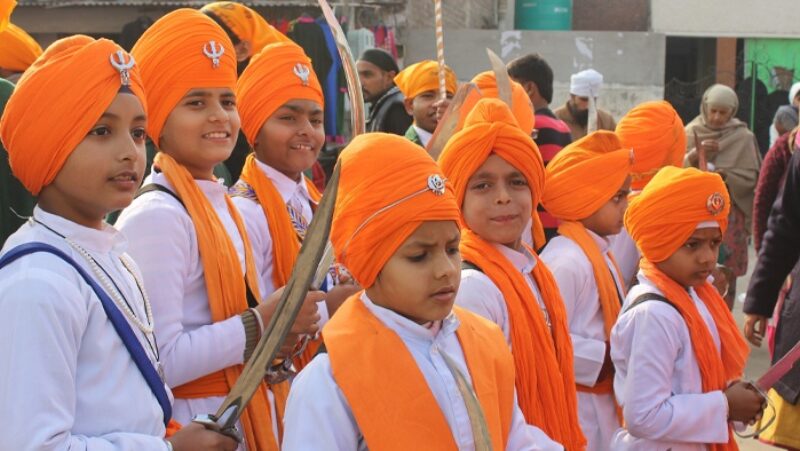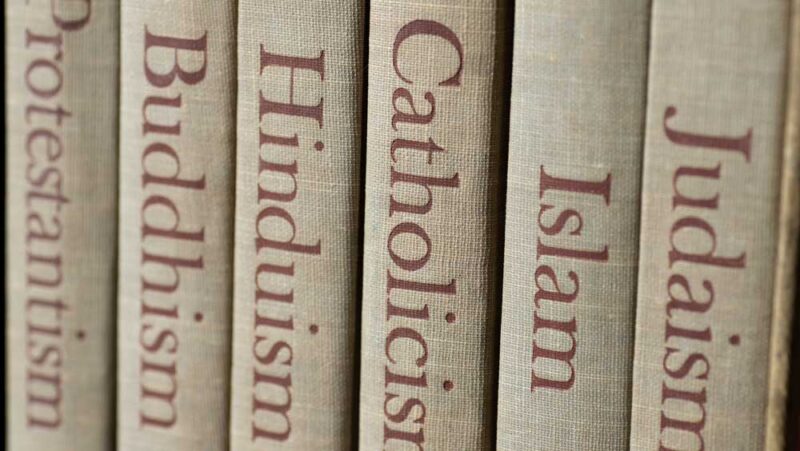Weʼre helping Americans know, understand, value and defend the First Amendment.
Inside One Faith Community’s Struggle for the Right to Worship
“Not welcome,” a vandal scrawled on a sign at the site of the future home of a community of believers in Murfreesboro, Tenn. “You are not wanted here,” a voicemail on the faith group’s phone line warned. “Your ‘religion’ is a sham,” claimed another message. Then came the arson and the bomb threat.
Imam Ossama Bahloul couldn’t have imagined that seeking a new place of worship and community center could generate such extreme reactions – and the struggle was just beginning.
The Search
Bahloul’s community needed a new place to serve a growing number of families, students from nearby Middle Tennessee State and Vanderbilt universities, and refugees who were part of U.S. government resettlement programs. It needed more space for the services that it, like many faith groups, had provided to the broader community just outside Nashville for more than 30 years: disaster relief work, helping with food banks, shelters and nursing homes, and cleaning up litter with Adopt-a-Highway.
“It’s not only a house of worship for Muslims here in the region, but also it's like the YMCA,” says Dr. Saleh Sbenaty, mosque member.
After an eight-month search, the Islamic Center of Murfreesboro purchased a suitable plot of land in November 2009. It submitted plans for the new building, got its permits in order and construction began just under a year later.
That’s when the backlash began.
The Backlash
Most residents, including the mayor, supported the community’s right to practice their religion – but a vocal minority did not. Through protests and petitions, vandalism, threats and arson, the outcry grew as some people questioned the right of their neighbors to practice their faith.
“Why is this even a story?” mosque member Dima Sbenaty remembers wondering. “Growing up in school, one of the first things that we learned in history was that this country was founded upon freedom of faith.”
Anti-Muslim sentiment had been on the rise. In 2010, 48% of Muslims in the U.S. told Gallup they had experienced discrimination in the previous year, more than any other major religious group and more than twice as much as Jewish, Catholic or Protestant Americans.
Half of people in the U.S. said in 2010 that most Americans are prejudiced toward Muslim Americans. One-third of people who say they aren’t personally prejudiced still have an unfavorable view of Islam. Those with unfavorable views were more likely to say they didn’t see Muslims as accepting of religions other than their own.
Gallup surveys, though, have found that Muslim Americans on average are more accepting and respectful of, and curious and knowledgeable about, different faiths than members of any other religious community. That data bears out in the congregants of Murfreesboro.
“One of the most important things for this center is to make people live in harmony with other religions in the community,” says mosque member Ahmad Abu-Halimah.
The Struggle
In September 2010, residents sued to stop the mosque from getting its final permits, and a judge eventually agreed. The judge said because of the “tremendous public interest,” the mosque’s permits, unlike the permits of at least 20 churches around the same time, should require extra public review.
The move caught the eye of religious freedom advocates at the federal level, including Eric Treene, then-U.S. Department of Justice special counsel for religious discrimination.
Government discrimination against a particular religious group – by requiring it to jump through more hoops than other religious groups – is not what the First Amendment’s protection of religious freedom looks like.
“If they were a church or a synagogue, this would be a nonissue,” says Treene.
The Department of Justice joined the ongoing legal fight for the mosque’s permits. The department and the mosque prevailed.
The Homecoming
Finally, on an August afternoon in 2012, three years after the Islamic Center first set out to find new space, the community of believers gathered to pray for the first time at their new house of worship.
“It’s a home of a sense for your body and soul. It is the most beautiful feeling," says Dr. Saleh Sbenaty.
Opponents continued to appeal for nearly two more years, but the legal struggle was ultimately settled in 2014 when the Supreme Court declined to intervene in the final open case.
Imam Bahloul says, “We had the Constitution on our side.”
The center’s Muslim members may be religious minorities in their town, but the First Amendment protects their religious freedom, just as it protects the predominant faith groups of Murfreesboro in parts of our free and varied nation where they are the outliers. That’s the beauty and importance of the First Amendment: It protects religious freedom for all.
"I am welcomed, and my community is welcome,” says Dima Sbenaty. “We are just as American as anyone else."
Now, 10 years later, the center is open to visitors and offers guest speakers to answer questions about Islam. Members remain active in the community, and its homepage proclaims: “It is our endeavor to continue building bridges of understanding and tolerance. … Let us stand together and build bridges rather than barriers, openness rather than walls.”
Related Content
Perspective: Sikh Americans Defend Religious Freedom For All
When is a Religious Symbol Not a Religious Symbol?
17 Religious Movies That May Change Your Perspective
The more you know,
the freer you are.
Learn about the First Amendment.


